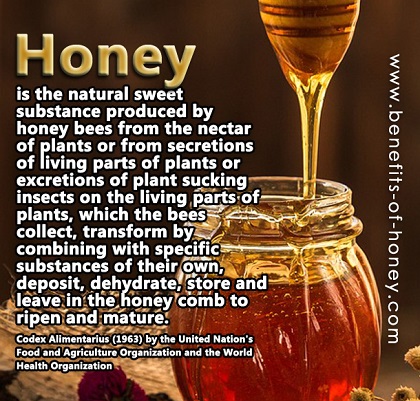
6 Things I Learned from The Honey Trail
It was exciting to "go on a honey trail" with Grace Pundyk to so many countries with the single aim of searching for honey. Her book, The Honey Trail , was a revelation and discovery of how honey is weighed in different countries, how much we can tell about a place by its honey, its importance to the culture, the people and the way they view honey and how they harvest honey in each place.
1. Organic Honey
In Australia, organic honey has to be recognized and certified by an authoritative organisation which insists the bees have not been fed sugar water, the paint used on the hives is organic, the honey is not overheated, and the hives are far enough away from any industry or urban environment.

2. Feather Bush and Jelly Bush
Feather Bush and Jelly Bush are almost never heard of. Unless you are a beekeeper in Australia, you will probably never know about these two honey varietals. Like Manuka, they are viscous, bold in flavor, and hard to extract. Also, they taste a bit like Manuka, and possess great healing prowess. However, they are miles away from gaining the same attention, research funding, and status or fetching the same price as Manuka. Is this another example showing the dark side of politics involving alternative medicine?
3. Adulterated Honey
Beekeepers in China generally live in appalling condition. They camp by the side of the road like gypsies and live literally from hand to mouth. They are too poor to wait for the bees to do the job properly. Hence, dilution is an issue for Chinese honey. Honey will be injected with liters of water, heated up and passed through an ultrafine ceramic or carbon filter, and then distilled into syrup, eliminating impurities such as antibiotics and at the same time destroying the honey of its essence. Adulteration also comes from beekeepers who routinely feed bees with sugar water. Chinese honey was banned throughout the European Union since 2002.
4. The Tough Russian Bees
Russian bees can "purify" themselves. Designed for the long harsh winters, these little bees have longer intestines that enable them to carry unused stores at for the next season. Compared to the world's most commonly used Italian bees, they are able to eliminate various diseases and mites and protect themselves much better due to their extra special ability to cleanse themselves.
5. Too Luxurious as a Sweet Treat
In Borneo, honey is valued for its medicinal and therapeutic properties and is used only as a medicine. It is treated as more of a functional commodity than a desirable sweet treat. This seems to be the same for many Asian countries, whereby using honey as a sweetener for coffee and tea, an ingredient for pastries, cakes or as a marinade for meats. Honey is deemed as too expensive for widespread use.
"Honey is universal and one could travel for an entire lifetime in search of sweetness and still never taste all the honey exists out there." ~ Grace Pundyk

6. Italian Honey
In stark contrast to other countries, Italy is unusually protective of their beekeepers and honey. But this is not surprising for culture that takes great pride in its culinary achievements, reliance on the intense flavors of quality produce, handcrafted food, and food authenticity. Italian beekeepers are careful about taking from the bee store surplus. If there is no surplus, there is no honey for the beekeeper.
End of 6 Things I Learned from The Honey Trail. Back to "Honey Book Resources"